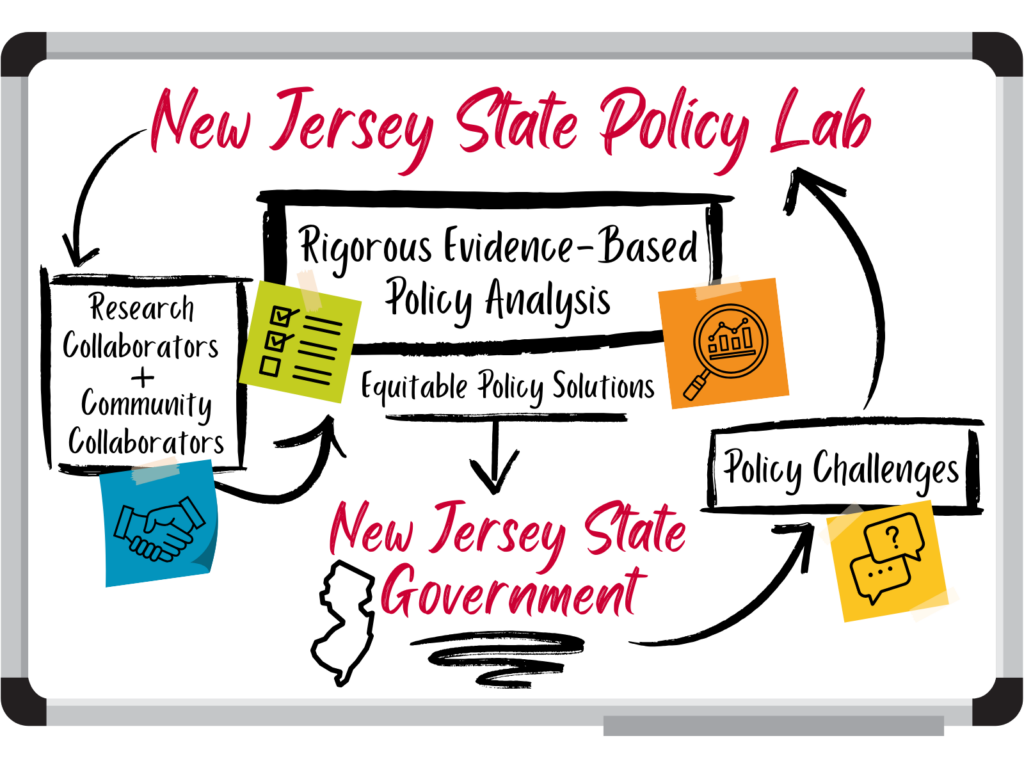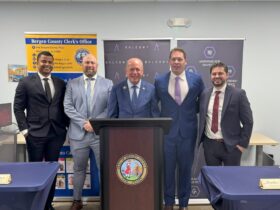The New Jersey Wealth Disparity Task Force recently released a report examining the causes of — and remedies for — longstanding wealth disparities that affect Black and Latino residents of the state.
“New Jersey — Building a State of Opportunity: A Report of the Wealth Disparity Task Force to Close Opportunity Gaps and Repair Structural Disparities” and the task force, were created and developed with the intention of examining both the causes of and remedies for addressing longstanding wealth disparities that affect Black and Latino New Jerseyans.
New Jersey and Racial Wealth Gaps
New Jersey has one of the highest racial wealth gaps in the country, according to the New Jersey Institute for Social Justice. The median household wealth of white families in New Jersey is $322,500, compared with just $17,700 and $26,100 for Black and Latina/o families.
“The findings in this report underscore the persistent wealth disparities that Black and Latino communities have endured for generations,” said Governor Phil Murphy.
“Ending these longstanding disparities is essential to cementing New Jersey’s reputation as the state of opportunity. While I am proud that our Administration has already acted upon a number of the recommendations in this report, we clearly have much more work to do. Over the next year, we’re committed to redoubling our efforts to build a more just, equitable, and inclusive future for all New Jerseyans,” Murphy said.
What Researchers Found
Researchers identified:
◾historical drivers of wealth disparities
◾current steps being taken to address these disparities
◾recommendations to implement further actions for more a inclusive and equitable state
“Through the lens of history, each of us can better identify past discrimination and understand the origins of the structural barriers that persist today,” said Lt. Gov. Tahesha Way.
“At this critical time in our nation’s history, I am grateful to see our Administration work to address these injustices, advance opportunities for all communities, and make meaningful and lasting progress toward a more equitable future for all,” Way added.
State Policy Lab at Rutgers
The New Jersey State Policy Lab at Rutgers University contributed research supporting the task force’s report, including
◾analyses of data
◾literature reviews
◾comprehensive reports

Stuart Shapiro, Charles Menifield, and Elizabeth Cooner met with the task force at various points during its work, and the Policy Lab coordinated faculty and student researchers who provided the working groups with reports on wealth disparities’ impacts on education, housing, health, criminal justice, and the economy.
It’s been one of my great honors to serve alongside the late Lt. Governor Oliver on such a critical issue. Wealth disparity affects us all, regardless of our resource base, regardless of our family traditions when it comes to college, regardless of race, gender, sexuality, or citizenship status,” said Rutgers University President Dr. Jonathan Holloway, who served as a Co-Chair of the Wealth Disparity Task Force.
“The proposals that the Task Force has generated share a focus on the interconnections we all have as we aspire to form a safer more stable society in which the citizens of New Jersey have a fair chance to secure a safe home, a healthy diet, quality medical care, and excellent schools,” added. Holloway
Each research area was overseen by a faculty advisor—Vandeen Campbell supported education research, Eric Seymour contributed housing research, Ellen Kurtzman prepared health research, Frank Edwards and Michael Ostermann offered insights regarding criminal justice research, James DeFilippis compiled research related to shared equity homeownership, and Ronald Quincy provided guidance related to the historical underpinnings of wealth disparities in the state. Jermaine Toney and Dawne Mouzon provided economic and health disparities research they each had conducted, respectively.
Several undergraduate and graduate students offered research assistance such as literature reviews, analyses, and report writing for each working group of the task force. Notably, a former New Jersey State Policy Lab teaching assistant and an intern were contributors to the final report — Breanna Brock and Maia Hill — who served as research interns and fellows for the Wealth Disparity Task Force.
Fulfilling a key commitment from his 2020 State of the State address, Governor Murphy established the Wealth Disparity Task Force to examine the causes of and remedies for the long-standing wealth disparities that affect Black and Hispanic or Latino New Jerseyans.
As a result of this extensive, years-long process, the report concludes by outlining 30 wide-ranging recommendations to begin repairing structural wealth disparities and increase opportunities for Black and Latino New Jerseyans to build generational wealth.
Task Force Proposals
Many of the proposals recommended by the Task Force overlap with existing efforts that have been spearheaded by the Murphy Administration. And, while the Murphy Administration hopes to implement many more of the report’s recommendations, it will require the commitment of multiple administrations to truly resolve the underlying disparities. The Task Force encourages continued public engagement and interagency collaboration to help direct implementation and assess outcomes as proposals are adopted so every New Jerseyan can reach their full potential.
“Although New Jersey has made significant strides in leveling the playing field for minority communities and business owners, our work is far from finished,” said New Jersey Economic Development Authority Chief Executive Officer Tim Sullivan.
“Under Governor Murphy’s leadership, the NJEDA has been able to implement programs designed to break down barriers in accessing capital, invest in the revitalization of underserved communities, and support projects that will improve air quality for families living in neighborhoods disproportionally affected by climate change. Together, we can create a stronger, more equitable economy for the next generation of New Jerseyans,” Sullivan said.
To view the full Wealth Disparity Task Force Report, please click here.











